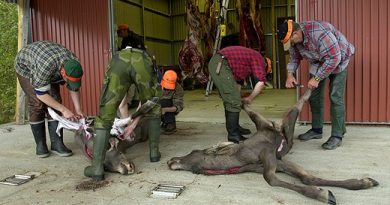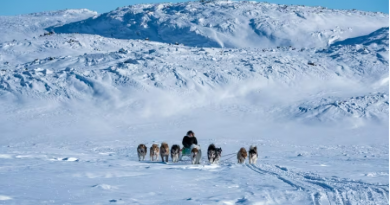What northerners are saying about truth and reconciliation this year
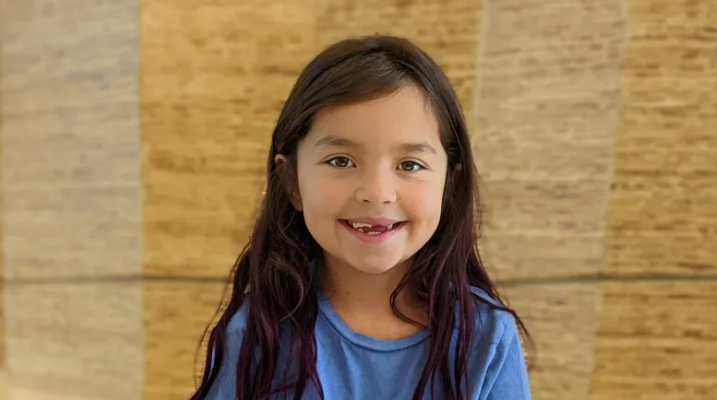
Friday is the National Day for Truth and Reconciliation.
Many people will mark the statutory holiday by donning orange and reflecting on the lives of Indigenous children who were sent to residential schools — the ones who died, and the ones who made it home but are affected by pervasive trauma.
Some schools in the North marked the day with events earlier in the week, since they’d be closed on the day itself.
“I see it as a way to spread knowledge of past mistakes,” said Madison Norick, a student at Robert Service School in Dawson City, Yukon. Norick said it’s also an opportunity to make commitments to doing better in the future.
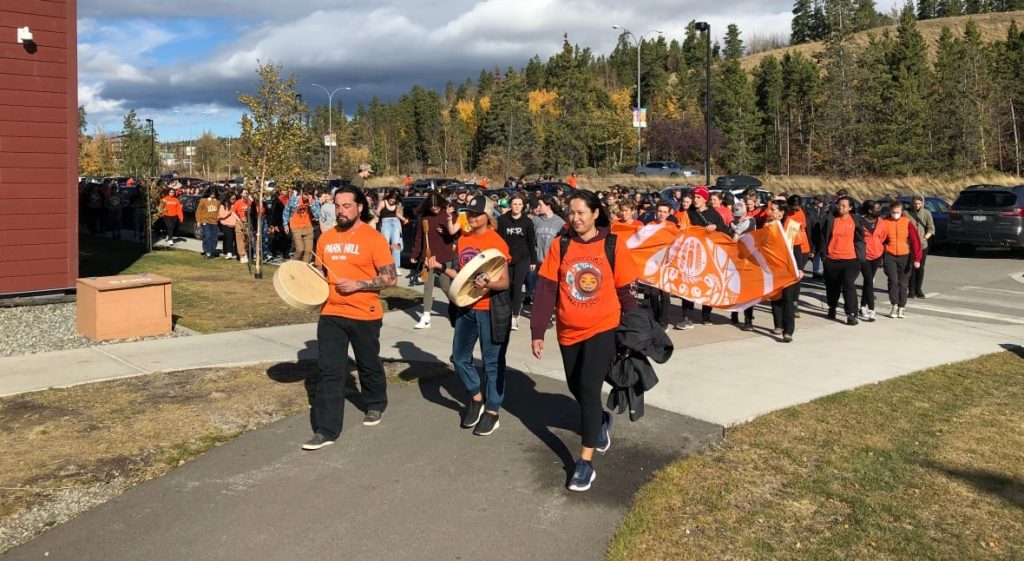
Sept. 30, also known as Orange Shirt Day, was made a statutory holiday in 2021, days after the Tk’emlúps te Secwépemc First Nation confirmed the discovery of about 200 potential burial sites on the grounds of a former residential school in Kamloops, B.C., last July.
It began in 2013 to honour residential school survivor Phyllis Webstad, who had her orange shirt taken away on the first day of school.
Deidra Carr, one of Norick’s classmates, describes it as a sad day — that brings up thoughts of a grandmother who attended residential school, and has carried the trauma of her experience with her. But, Carr said, singing with the Han Singers is one way of participating in reconciliation or, as Allison Anderson, the school’s Han language teacher puts it, “reconciliaction.”
“Here at … Robert Service School, I feel like many of us are participating really well in doing actions to make things better,” said Anderson, while explaining the concept of reconciliaction.
Sahą́ı̨́Ɂą Talbot, a student at K’àlemì Dene School in N’Dilo, N.W.T., said Orange Shirt Day “means a lot,” in part because of family members who attended residential schools. “My mah doesn’t like talking about it because she went there twice, and neither does my great grandma. But they tell me stories.”
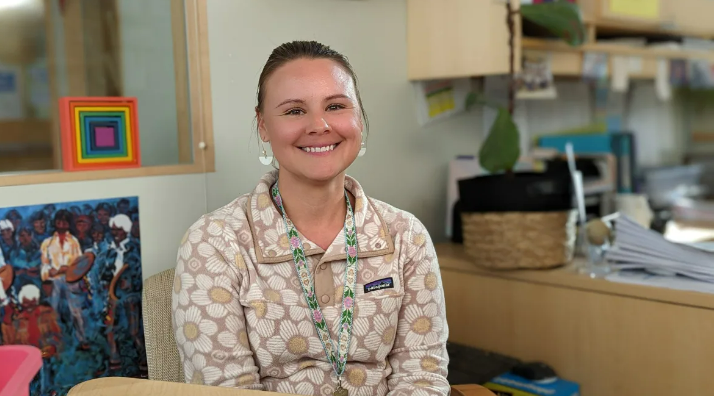
At K’àlemì Dene School, the entire month of September has been dedicated to learning about the meaning of orange shirts, residential schools, and truth and reconciliation said Jolene MacDonald, who teaches grades three and four.
“I also really like to focus on cultural pride and being who you are,” said MacDonald. “The truth piece is important, this is what happened. But that reconciliation piece, in my mind and my heart, is building up Indigenous children and making education today a different experience for them.”
A lot has happened this past year.
A delegation of First Nations, Inuit and Métis went to Rome at the end of March to press Pope Francis for an apology for the Catholic church’s role in the residential school system. A few months later, the the Pope visited Canada and made a stop in Iqaluit where he offered an apology for the “evil perpetrated by not a few Catholics” involved in residential schools.
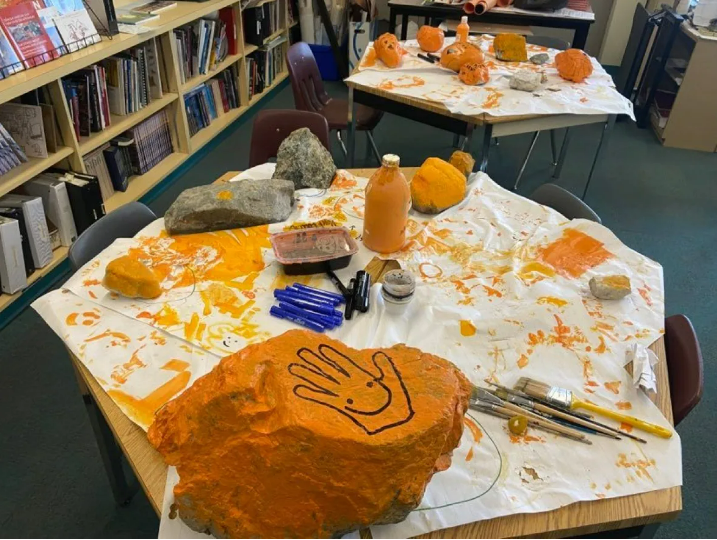
Earlier this month, a delegation from Nunavut Tunngavik Inc. went to France and confronted ex-priest and alleged abuser Johannes Rivoire. The visit was meant to drum up public and political support for extraditing him to Canada to face criminal charges.
Many families continue to search for closure, but some found it this year — when The Nanilavut Initiative announced it had found graves of 12 Inuvialuit beneficiaries in Edmonton. The initiative is a collaboration between the federal government and Inuit Tapiriit Kanatami, and works with five regions in Canada to find Inuit who died during the tuberculosis epidemic.
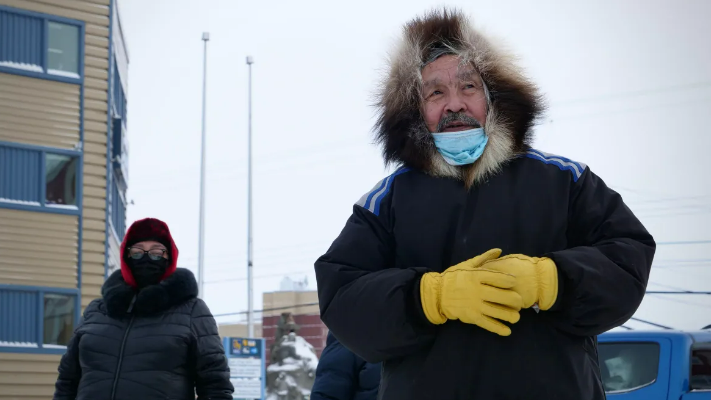
It is the same effort that helped Jack Anawak find the grave of his mother in 2019.
Anawak, a well-known figure in Nunavut politics who is advising the federal government’s advisory committee on residential schools, missing children and unmarked burials, said a lot of progress has been made on addressing abuse that happened in residential schools.
“We have reached the point we wanted to get to and now, what has to happened from here on, is that there needs to be escalation of services offered to those former students and others — because there’s intergenerational trauma as well,” he said.
Written from interviews by Chris MacIntyre, Matisse Harvey and Jared Monkman
Related stories from around the North:
Canada: “We still have a lot of healing to do with our fellow Canadians” – National Day for Truth and Reconciliation observed September 30, Eye on the Arctic
Finland: Sami Parliament in Finland agrees more time needed for Truth and Reconciliation Commission preparation, Eye on the Arctic
Greenland: Danish PM apologizes to Greenlanders taken to Denmark as children in 1950s, Eye on the Arctic
Norway: Can cross-border cooperation help decolonize Sami-language education, Eye on the Arctic
Sweden: Sami in Sweden start work on structure of Truth and Reconciliation Commission, Eye on the Arctic
United States: Alaska reckons with missing data on murdered Indigenous women, Alaska Public Media

